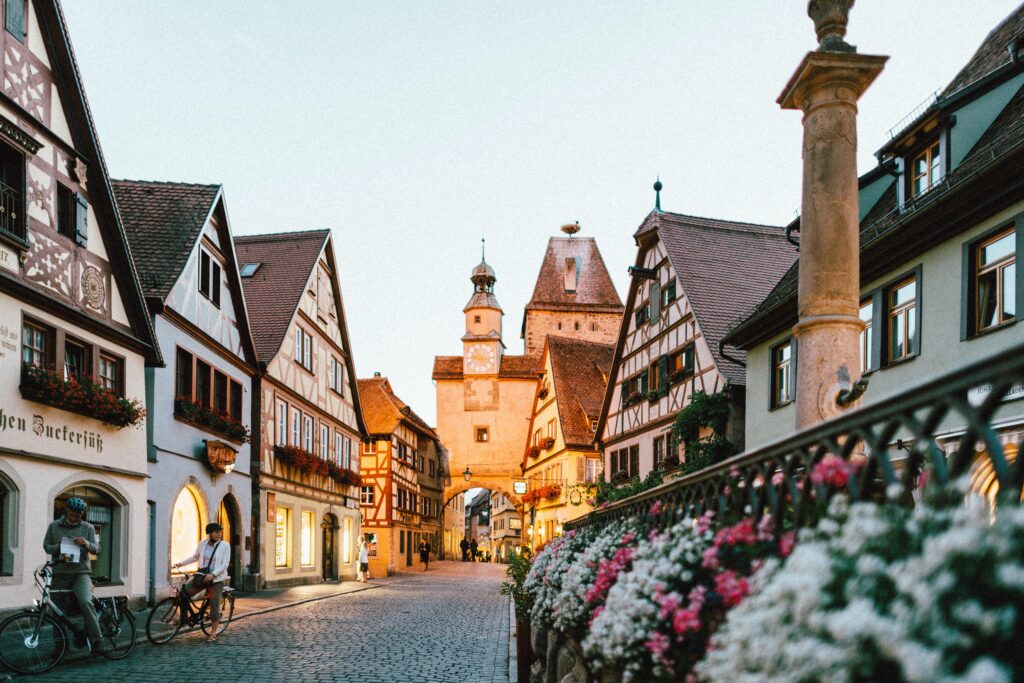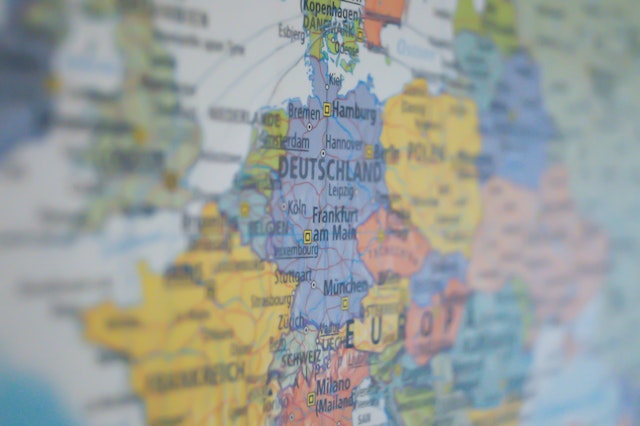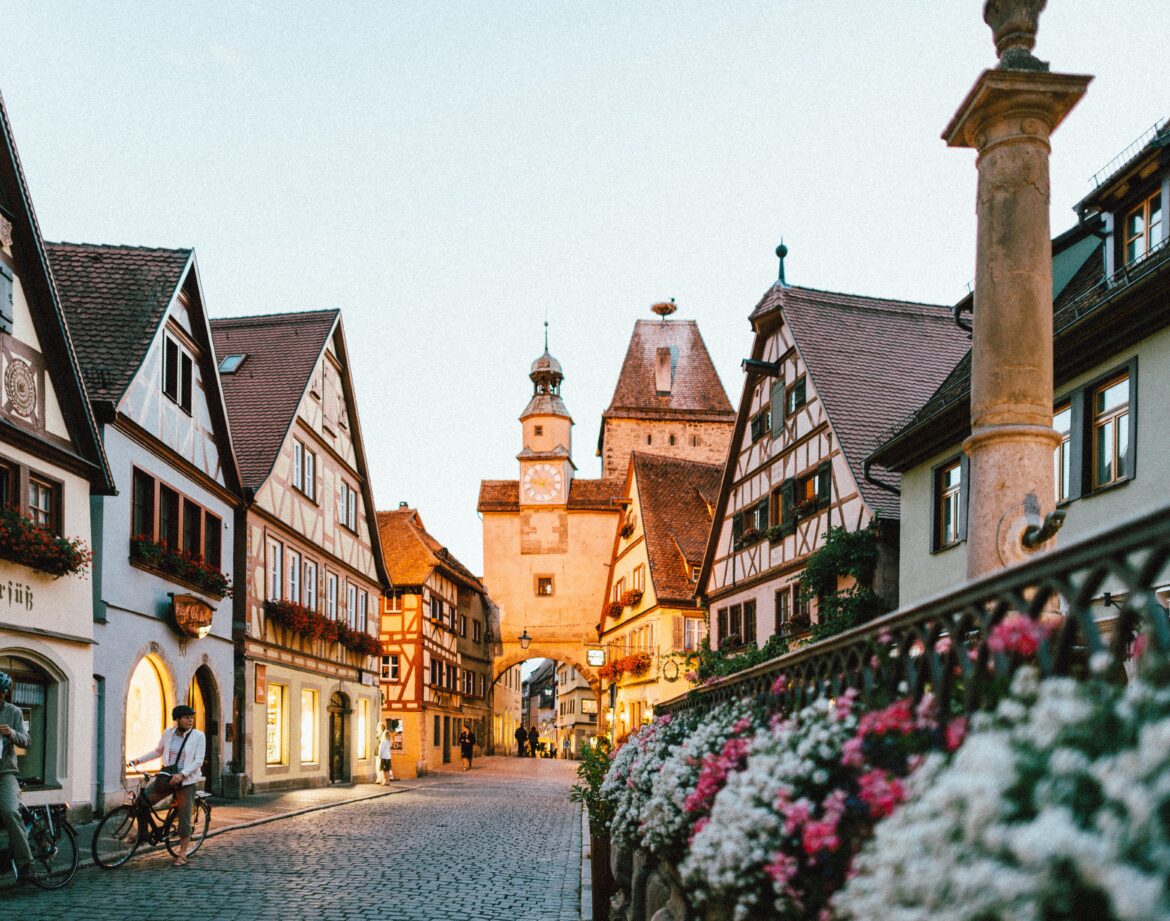Living in Germany as an Expat: 10 Things You Need to Know
Welcome to our blog about living in Germany as an expat! If you’re considering making the move to Germany or have already made the transition, you’re in the right place. In this blog, we’ll be sharing our top tips and insights on everything from learning the language and exploring bike-friendly cities to the country’s excellent healthcare system and its love of recycling. We’ll also delve into some of the cultural quirks you might encounter, such as the importance of sticking to the rules and the country’s vibrant techno music scene. Plus, we’ll cover practical matters like the cost of living and the diverse range of landscapes and natural beauty that Germany has to offer. Whether you’re a seasoned expat or new to living abroad, we hope this blog will provide you with valuable information and inspiration for your journey in Germany.
1. Learning the language goes a long way
While many Germans do speak English, it’s always appreciated when expats make an effort to learn a little German. Plus, in more rural areas, most signs are only written in German. Start by learning some basic phrases like “hello,” “goodbye,” “please,” “thank you,” “yes,” “no,” and “excuse me.”
2. Explore some of the most bike-friendly cities
Germans love cycling and it shows in their city infrastructure, with bike lanes practically everywhere. Bremen and Berlin are both highly ranked on the Copenhagenize 2019 index of most bike-friendly cities, with Bremen coming in at 11th place worldwide.

3. The healthcare system is excellent
The German government offers free healthcare to all citizens, including expats, as long as you have some form of health insurance. About 87% of people in Germany have public health insurance (Gesetzliche Krankenversicherung) which allows them to join one of 109 insurers known as sickness funds. The universal public healthcare system is funded through taxation and covers almost all medical treatments, with any statutory copayments for prescriptions usually being very cheap.

4. Germans are big on recycling
The country has a “Green Dot” recycling scheme that charges manufacturers higher fees for excess packaging and encourages citizens to recycle everything. Glass bottles are separated by color, organic waste is sent to compost, paper and cardboard are recycled, and electronics are organized to see if they can be reused.

5. Christmas is magical
Germany is a great place to experience Christmas, with festive markets offering delicious food and drinks, skiing on snowy mountains, ice skating on frozen lakes, and gazing at snow-dusted castles. No matter what you’re looking for, there’s something for everyone.

6. You might get a taste for techno
Germany has an unmatched techno music scene, with Berlin at its center. After the fall of the Berlin Wall, many abandoned buildings became the home of illegal parties, fostering the city’s love of techno music. Nowadays, most small clubs have at least one techno night per week, while the big clubs offer more extravagant shows.

6. Always stick to the rules
If you want to get along with everyone in Germany, it’s important to follow the rules. For example, jaywalking is not tolerated and walking across the road without using a proper crossing will likely earn you disapproving stares. You should also stay off cycle paths while walking to avoid angry comments from passing cyclists. Above all, never disrespect quiet hours, which are regulated by law and forbid loud noise on Sundays. Even activities like putting on loud music, vacuuming, or doing a load of laundry during quiet hours can lead to a visit from public order officers.
7. The cost of living is reasonable
According to the Expat Insider Survey, the average cost of living in Germany is about average compared to other countries. While prices are gradually increasing, Germany is still one of the more affordable European countries to live in. However, this will depend on where you move to, as Munich, Frankfurt, and Cologne are the most expensive cities. On average, a household’s living expenses in Germany are about €850 ($1,016) per month, with 36% of that going towards housing and utilities.
8. Germany is home to some of the world’s best beer
German beer is famous around the world for its high quality and strict purity laws. The country has over 1,300 breweries producing more than 5,000 different types of beer.

9. The country is home to a diverse range of landscapes and natural beauty:
From the Bavarian Alps in the south to the coastal regions in the north, Germany is home to a wide variety of landscapes and natural beauty. The Black Forest, a large forested mountain range in southwest Germany, is home to picturesque mountain ranges, lakes, and small villages. The country is also home to several national parks, including the Bavarian Forest National Park, the Harz National Park, and the Jasmund National Park, which is home to the famous chalk cliffs of Rügen Island. There is always something new to explore in Germany’s diverse and beautiful landscape.
10. Germany is an amazing centralized location for exploring other European countries:
Germany’s central location in Europe makes it an ideal base for exploring other countries. Many other European countries are just a short flight or train ride away, making it easy to visit multiple destinations in a single trip. From Germany, you can easily visit countries like France, Belgium, the Netherlands, Denmark, Austria, Czech Republic, and more. Whether you’re interested in visiting major cities like Paris and Amsterdam or exploring lesser-known destinations, Germany’s central location makes it easy to plan a variety of trips.
Bonus!
Germany is an amazing centralized location for exploring other European countries:
Germany’s central location in Europe makes it an ideal base for exploring other countries. Many other European countries are just a short flight or train ride away, making it easy to visit multiple destinations in a single trip. From Germany, you can easily visit countries like France, Belgium, the Netherlands, Denmark, Austria, Czech Republic, and more. Whether you’re interested in visiting major cities like Paris and Amsterdam or exploring lesser-known destinations, Germany’s central location makes it easy to plan a variety of trips.

Conclusion
Living in Germany as an expat can be an exciting and rewarding experience. From learning the language and exploring bike-friendly cities to taking advantage of the excellent healthcare system and participating in the country’s recycling efforts, there is always something new to discover. Germany’s cultural quirks, such as the importance of following the rules and the vibrant techno music scene, add to the unique character of the country. With a reasonable cost of living and a centralized location for exploring other European countries, Germany is a great place to call home. Whether you’re just starting your journey as an expat in Germany or have been living in the country for a while, we hope this blog has provided you with valuable information and inspiration for your journey.


